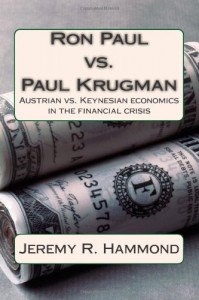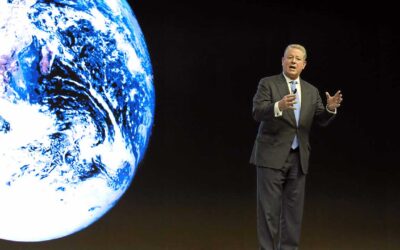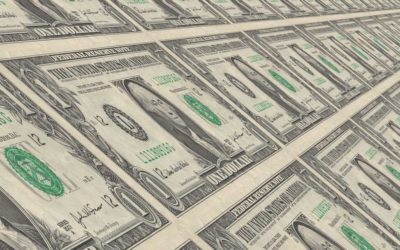Former Fed Chairman Alan Greenspan has a new book out, The Map and the Territory: Risk, Human Nature, and the Future of Forecasting, in which he tries to explain why nobody saw the 2008 financial crisis coming. And there’s his first problem: some people did see it coming, but Greenspan doesn’t seem interested in learning from them.
I haven’t read the book, but there’s an adapted excerpt in the November/December issue of Foreign Affairs, titled “Never Saw It Coming”, in which he claims that “virtually every economist and policymaker of note” was “blind to the coming calamity”. See, students of the Austrian school of economics who did predict the collapse just aren’t noteworthy. They just don’t count. Only Keynesian economists are worthy of note, even though, admittedly, “The conventional method of predicting macroeconomic developments — econometric modeling, the roots of which lie in the work of John Maynard Keynes — had failed when it was needed most….”
And yet, Greenspan turns to Keynes for answers, blaming the crisis on “animal spirits”, which refers to “the importance of irrational factors in economic decision-making”. He allows that “people, especially during periods of extreme economic stress, act in ways that are more predictable than economists have traditionally understood” and that their “animal spirits” “display consistencies that can help economists identify emerging price bubbles”, but by dismissing this “herd behavior” as “irrational”, he — willfully or otherwise — shifts attention away from the role he himself played as Fed Chairman.

This is the same attempt to shift the focus away from the role of the Fed in creating the housing bubble that I address in my book Ron Paul vs. Paul Krugman: Austrian vs. Keynesian Economics in the Financial Crisis. Krugman similarly blamed both the dot-com and housing bubbles on “irrational exuberance”. As I wrote on page 47:
Such an explanation is by no means sufficient, and can by no means be reconciled with the fact that the housing bubble was a predictable consequence of lower interest rates. It had, after all, been precisely in order to spur borrowing and spending in the housing sector that Krugman had called for cutting rates in the first place. Thus, when people behaved precisely as he predicted they would, it could hardly be considered “irrational”.
Watch this video I posted the other day for a brief overview about how the Fed’s policy of printing money to push interest rates artificially low (below where they otherwise would be if determined by the market) causes the business cycle of booms and busts. And if you’re interested in delving further into understanding this, get my book, about which Barron’s had to say: “This short work conveys more insight into the causes and cures of business cycles than most textbooks, and more about the recent business cycle than most volumes of much greater length.”
Krugman, ironically, even though Greenspan implemented the Fed policy he was advocating at the time of pushing interest rates down, doesn’t think much of the former Fed Chairman. In a blog post titled “The Worst Ex-Central Banker in the World“, Krugman berates him:
Greenspan believes that he bears no responsibility for all the bad things that happened on his watch — and that the solution to financial crises is, you guessed it, less government…. Greenspan isn’t just being a bad economist here, he’s being a bad person, refusing to accept responsibility for his errors in and out of office. And he’s still out there, doing his best to make the world a worse place.
That Greenspan is attempting with his book to whitewash his own role in creating the housing bubble is apparent just from the above-referenced excerpt in Foreign Affairs, but it is bizarre for Krugman to allude to Greenspan’s responsibility for the crisis only to reject a solution of “less government”. Indeed, government caused the crisis, starting with the monetary policy of the government-legislated monopoly over the supply of currency and credit, as well as the government policy of encouraging homeownership. And, of course, Krugman is being a hypocrite, as he has never accepted responsibility for having advocated that Fed policy that caused the bubble that precipitated the crisis.



Alan Greenspan’s central goal has been always to pander to his rich friends on Wall Street, and make them richer, at the expense of everyone else. To Allen Greenspan, nothing that Wall Street does is illegal or immoral – stealing by selling worthless “troubled securities”, taking bribes to rate worthless securities so the public will buy them (S&P, Moodies), selling worthless securities insurance (AIG), clearly illegal lending practices (Bank of America) – Alan Greenspan does not have a problem with any of these behaviors, and does not think that any of them are wrong, every though the Justice Department, the SECperson the general public, and any decend person, does view them as wrong. Alan Greenspan has no morals, and is a pathological liar.
You’ll get no argument from me there!